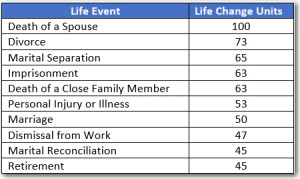It’s a typical Sunday morning at the Zaino household. I pad downstairs escorted by two furry friends and ease into my routine – put the water on for my French roast pour-over, hit the button to grind the beans and of course, feed the cats who are relentless in their pursuit of my affection, no wait, make that food.
With cats fed and coffee in hand, I grab my iPad and make my way to my office to indulge in surfing around the internet, checking on friends, and getting caught up on world news. Soon I hear a stirring at the next-door neighbor’s as they round up their kids to head to morning Mass – I could almost set my watch by it. And then there is a familiar sound of a mild disturbance emanating from the front foyer. Lily, my smartest cat, is chasing her tail again. It’s a daily occurrence, usually after breakfast. I like to think she is brilliantly self-amusing.
I absolutely love my Sunday morning routine – wouldn’t change it for the world. Right? Change happens whether we want it or not. I am an IS project manager and change keeps me in business, but the end users that I serve may, at times, be unwilling participants. Fear of change is a thing. There is a name for it – metathesiophobia. It is often linked with the fear of moving – tropophobia. Who knew? Apparently, I suffer from neither of these phobias. If I did, I’d be a hot mess given recent events in my life. For a diagnosis of phobia, the fear and stress need to be irrational – fear that there might be change.
Actual change can lead to stress and even health issues. Back in 1967, two psychiatrists, Thomas Holmes and Richard Rahe, conducted a study, examining the medical records of over 5,000 medical patients to determine whether stressful events can lead to illness. They came up with the Holmes and Rahe Stress Scale which is a list of 43 stressful life events that can contribute to illness. Nine of the top 10 events are related to marriage, work, and illness/death.
To come up with a score, you look at the past year, you add up all events that you have experienced:
- Score of 300+: At risk of illness.
- Score of 150-299: Risk of illness is moderate (reduced by 30% of the above risk).
- Score < 150: Only have slight risk of illness.
Being the optimist that I am, I can’t help but wonder if Holmes and Rahe considered that positive life events might offset the stressful events. Oh well. That’s neither here nor there.
Getting back to my work as a project manager, imagine if you will, that you are introducing change, e.g. new software solution. The stress scale event, change in responsibilities, which is sure to happen during an implementation, is 29 units. Also factor in:
a. You don’t know how that person will respond to change i.e. do they have tendencies toward irrational fear.
b. You may not know what other life events each team member has going on that might compound the stress.
A routine makes us feel in control. On the list, vacation scored a mere 13, but my ex-husband would make going on vacation a miserable event. He would go through a personality change during the preparation and the travel. It wasn’t until we got there, that he seemed to calm down.
I have observed varying levels of stressful reactions across project teams and in training classes. It can be challenging, even impossible, as a project manager and trainer, to mitigate the stress in others. The one thing that we can control is our own behavior, which may in turn, affect others in a positive way. Include the team in all aspects of planning. Follow the plan. Do the best you can to keep the project on a steady course and to minimize surprises.
In closing, keep in mind that it may not just be the implementation work that is causing stress in some team members. I’ll share with you one of my favorite quotes although I am not sure who to attribute it to:
“Let us be kind, one to another, for most of us are fighting a hard battle.”



Deb,
Thank you for the thoughtful and well written post. I believe it applies to more than just project management. Soemthing we can all think about and apply every day.
Hi Deb,
I have the same quote taped above my monitor. I think the original source is Rev. John Watson.
Laura